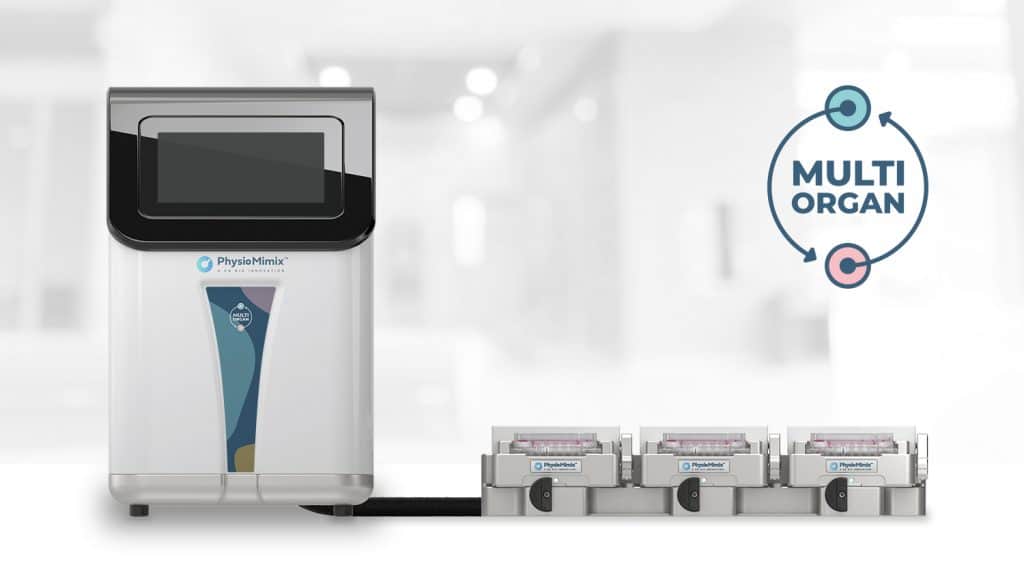
Next generation organ-on-a-chip technology adopted by King’s College London
pharmafile | June 29, 2021 | News story | Manufacturing and Production | organ-on-a-chip, research collaboration, technology, university
CN Bio, an organ-on-a-chip company that designs and manufactures single and multi-organ microphysiological systems (MPS), has announced that their novel technology, the PhysioMimix, has been adopted by King’s College London.
This announcement follows a research collaboration between the two organisations, and King’s College London has now selected the PhysioMimix system to create a unique human-relevant liver-intestinal model for characterising and manipulating host-microbial interactions, to support improved outcomes in cirrhosis.
The Multi-Organ MPS combines CN Bio’s in vitro 3D liver model with a range of other organs, to provide a flexible in vitro human-relevant alternative to animals that facilitates the investigation of inter-organ cross talk effects.
The PhysioMimix will provide King’s College London’s research team with the versatility to create a human two-organ liver-intestinal model to investigate the gut microbiota-liver axis and identify key progressive stages towards liver failure.
By using multifaceted-omics analysis, their research aims to explore modulating the microbiome, to restore the gut barrier function and innate immunity, and subsequently develop novel interventions that minimise further liver deterioration.
Debbie Shawcross, Professor of Hepatology and Chronic Liver Failure at the School of Immunology and Microbial Sciences at King’s College London, said: “Human Gut-liver-Chip technology has the potential to provide significant ethical and research advantages over animal models, including easier manipulation and removal of cross-species translatability.
“We hope to evidence the utility of this platform, to benefit research in liver disorders and the microbiome space, for which liver or intestinal data could help find potential therapeutic solutions.”
There is an increasing burden of chronic liver disease worldwide, with cirrhosis and the complications of viral hepatitis accounting for 2 million deaths per year. The gut microbiome is significant in the pathogenesis of cirrhosis; caused by an imbalance between healthy and pathogenic gut bacteria. However, identifying key biomarkers and understanding how to manipulate the resident microbiota to improve outcomes in cirrhosis remains a major area of unmet clinical need.
Dr Tomasz Kostrzewski, Director of Biology at CN Bio, said: “This is a cutting-edge collaboration, with a world-leading university; we are pleased to see it result in the adoption of our new PhysioMimix multi-organ platform, demonstrating the industry’s motivation to advance to the next generation of organ-on-a-chip research.
“As a company, we are striving to expand the boundaries of humanised pre-clinical research towards body-on-a-chip, moving away from isolated individual organs to more complex biological systems, previously only possible using animal models.”
The collaboration aims to further expand the application of CN Bio’s liver-on-a-chip models for chronic liver disease research, which currently includes advanced in vitro assays for non-alcoholic fatty liver disease, steatohepatitis Hepatitis B virus, and alcoholic hepatitis.
Kat Jenkins
Related Content

Medidata launches programme to accelerate therapy delivery
Medidata has announced the launch of its Medidata Site Insights Program – a collection of …

Genentech and NVIDIA enter AI research collaboration
Genentech has announced that it has entered into a multi-year strategic research collaboration with NVIDIA …

Expansion for first FDA-approved video game for ADHD treatment
Akili Interactive has announced the expansion of its prescription video game treatment, EndeavorRx, with the …






